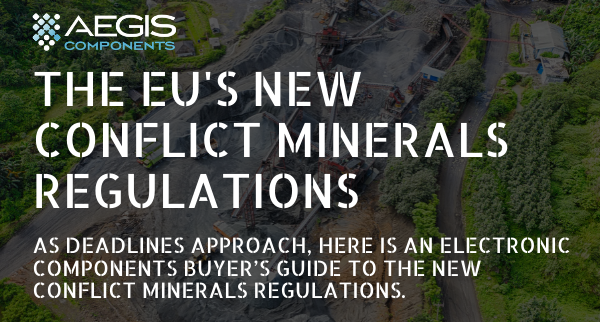
In March of 2017, the European commission adopted new laws regulating mineral imports coming from conflict affected areas, called conflict minerals regulations. These new regulations go into effect and apply across the EU on January 1st 2021, only a few months from now. The regulations apply to minerals and metals of:
The aim of the regulations is to:
While the conflict minerals regulations apply directly to between 600-1000 EU importers, it will also indirectly affect an estimated 500 smelters and refiners of tungsten, tin, gold, tantalum, regardless of if they are in the EU or not. Production of goods often involves several companies undertaking various tasks along the supply chain.
Firms that extract, process, and refine raw materials are called ‘upstream’ companies. The EU regulation identifies mining companies, raw material traders, smelters and refiners as upstream companies. Other parties, which the EU Commission calls “downstream” companies, process metals produced during the upstream stage into a finished product. The downstream stage includes the sale of the product to other businesses, governments, or private individuals.
The rules associated with the conflict minerals regulations are different for upstream and downstream companies though. Upstream companies are required to comply with the mandatory rules on due diligence when they import, as this is the most high-risk area of the supply chain. Downstream companies though, are classified into two categories. Downstream companies involved in importing metal-stage products have also been required to comply with the mandatory due diligence rules. However, those companies that operate beyond the metal stage do not have obligations under the conflict minerals regulations. These latter companies are expected to use reporting and other tools to make their due diligence more transparent.
The European Commission estimates that there are approximately 880,000 EU-based companies operating in manufacturing sectors and working with tin, tantalum, tungsten, and gold. It is estimated that the by the EU conflict minerals regulations will directly affect 600 to 1000 EU importers will indirectly affect 500 smelters and refiners.
Aegis Components provides electronic and electrical components from verified suppliers to ensure that the quality you expect is delivered every time.
Fill up the form and our team will get back to you within 24 hours.